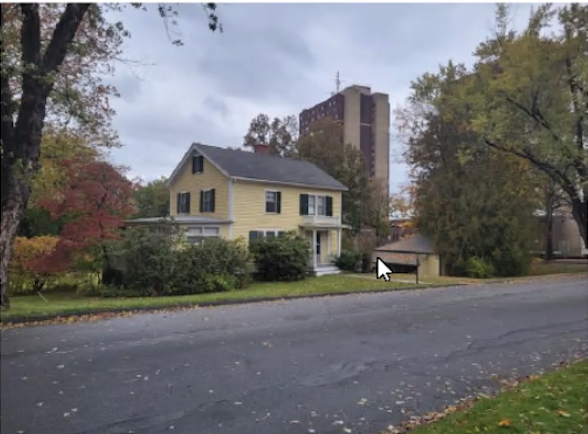Opinion: Zoning Bylaw Changes Need To Consider Impact Of UMass On Permanent Residents

Photo: amherstma.gov
This column appeared previously in The Amherst Bulletin

Amherst Forward is a group that purports to want to help Amherst thrive. True, as has been noted by members of the group, neighborhoods change; towns change; everything changes — that is the nature of passing time.
A main function of town council is figuring out how to best guide those changes in order to maximize the welfare of the greatest number of Amherst’s residents while preserving the rights of the less numerous and/or powerful.
Zoning regulations keep the peace between neighbors and guide the inevitable changes that towns go through. Changing these regulations must be done openly, judiciously and expeditiously, balancing precedents with the pressing realities Amherst faces now, and the ongoing need for growth and change.
Major changes to zoning should be the topic of public debate and undertaken by town council and the zoning board. A major rewriting of those rules is underway, and it should address as many particulars as possible. Zoning appeals should not be abrogations of the rules, they should amount to fine tuning, the tempering of regulations, helping them comport more closely to unforeseen needs and extenuating circumstances.
Moving amherst forward is a laudable goal. The question is, forward toward what? Should Amherst be, first and foremost, a town where developers and investors can maximize their profits? Or should Amherst move toward something more manageable, sustainable and equitable? Zoning laws must safeguard residents and the environment, while guiding development.
Amherst is again facing an academic year wherein the university has enrolled more freshmen students than it has dorms to house. The “official excuse” will probably be that more accepted students are planning to attend than UMass counted on.
This also happened last year, and possibly for years before that. The university intentionally admits more than it has room for in anticipation that some accepted students will elect not to come. By doing this, UMass is showing it disrespects the needs and welfare of the Amherst community by making their problem our problem. The follow-up question: Why not use a wait-list so that demand does not exceed the supply of spaces?
This is another instance where UMass gets representation in town government (by virtue of its size) without taxation. The university occupies a large percentage of Amherst’s land, thereby taking it out of taxation, while it remains unresponsive to community needs or rules. It must limit its enrollment and establish clear lines between the town and the university for the management of students living off-campus.
Amherst is unusual, in that it is one of the smallest towns in the country in comparison to the size of its student community. It is only in the last decade that the expansion of UMass has meant there are now more students living here during the academic year than there are permanent residents. Amherst’s zoning regulations and their enforcement have not kept pace with the changes this has imposed.
The situation is further complicated by the national trend of investors seeing real estate investment, especially in student housing, as the latest get rich quick scheme. But what passes as opportunity for investors spells immediate trouble for many residents, except those living in the most upscale neighborhoods, and even they will eventually feel the effects as the population skews increasingly toward students.
Multimillion-dollar projects like replacing the elementary school and remodeling the Jones Library are predicated on the needs of families, many of whom are being priced out of town as single-family housing is lost to student rental conversions. It is a multidimensional problem that requires buy-in from UMass and its trustees, and extensive revisions in zoning to protect Amherst residents, while seeing to the needs of students and encouraging them to act responsibly.
Those revisions should be primarily the province of Town Council and the Zoning Board, not the result of granting piecemeal exemptions, or residents tired of student life disrupting their lives will move out, and the town will drift toward a chaotic future.
John Varner lives in Amherst.

1 thought on “Opinion: Zoning Bylaw Changes Need To Consider Impact Of UMass On Permanent Residents”